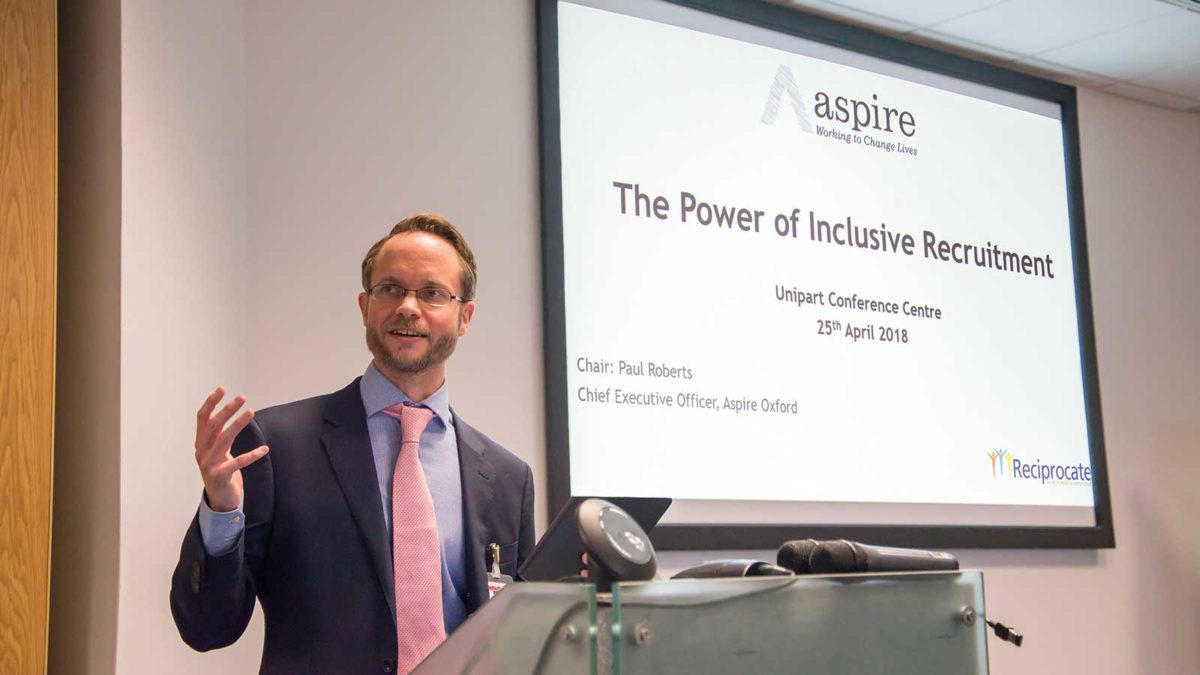
A more Inclusive Economy for Oxfordshire, What does that mean for your business?
A more Inclusive Economy for Oxfordshire, What does that mean for your business?
Oxfordshire has one of the strongest regional economies in the UK yet still faces many social and environmental challenges. But emerging in response to growing recognition of this are examples of ways in which businesses are stepping up to share responsibility to put this right, whilst also benefitting from the opportunities opening up to help create a more Inclusive Economy and one that works for everyone.
What is a more “Inclusive Economy”?
In 2016, the UK Government set up an Inclusive Economy Unit to “focus on expanding opportunities for those who are struggling to cope; harnessing the power of private investment and business for the advantage of everyone as well as improving delivery of public services.” The Civil Society strategy: Building a Future That Works for Everyone also includes a section on the private sector: “promoting business, finance, and tech for good”. The Inclusive Economy Partnership it also set up supports this work.
Anna Swaithes, Head of Responsible Business at the Government’s Inclusive Economy Unit explained, “Business done right is a force for good – and leading businesses increasingly put social and environmental responsibility at the heart of what they do. Through the Inclusive Economy Partnership, we are catalysing partnerships between businesses, civil society organisations and government to help tackle some of society’s most entrenched problems – including financial inclusion, mental health and transition to work for young people. It is brilliant to see what can be achieved when organisations come together around a shared commitment.”
How can business contribute and benefit?
Although the principle isn’t new, here in Oxfordshire there has been a clear shift in the development of very creative initiatives with wide-ranging benefits. An example of one of the themes Anna Swaithes referred to is financial inclusion. Unipart has been running financial wellbeing programmes for staff, supported by external agencies to help them with personal financial matters. Deb Astles, HR Director, Corporate Responsibility & Policy said “the initiative has been well-received by staff and we see this bringing significant benefits to our employees and in turn, the business. The better they are able to manage their personal finances, the less worry they will have. This can only be a good thing for their overall wellbeing, attendance, productivity and loyalty”.
Another increasingly hot topic aligned to this is the Living Wage. Although challenging for some sectors, we have some notable employers locally who have achieved Living Wage Employer accreditation including Oxford Direct Services. Simon Howick, Managing Director there pointed out “Our employees deliver great services to the people and businesses of Oxford and the surrounding area. We believe paying the Oxford Living Wage is the minimum we should commit to in order to help our staff with the high cost of living in Oxford and to show them that Oxford Direct Services cares. But it also makes sense for businesses as well. Paying the Oxford Living Wage can help to improve staff motivation and retention, quality of work and customer service.”
The Oxford Bus Company is also a Living Wage Employer and has a reputation for supporting local communities in a range of ways, establishing cross sector partnerships that result in positive social, environmental and economic impact. It recently donated a bus to local Social Enterprise, Aspire Oxford to convert it into a gym. Trainees supported by Aspire to get back into employment are working alongside the company’s body shop team to convert the bus so Aspire can support the fitness of trainees when the project is completed.
Aspire Oxford has also been working with local employers to raise awareness and promote the benefits from Inclusive Recruitment. The skills and life experience of people being supported back into employment after facing significant challenges by the likes of Aspire Oxford and Tap Social Movement really can enhance any workplace. Aspire has been running an annual employer conference for the past few years to showcase examples, this year featuring Taylor Wimpey, John Lewis & Partners, Hello Fresh and the MidCounties Cooperative. With more vacancies in Oxfordshire than people available, employers have recognised that considering cohorts they may have previously ignored can add a huge amount to the workplace. Commenting on a new Inclusive Recruitment Charter recently launched, Aspire’s Chief Executive, Paul Roberts said “We were delighted to announce the first three awards of the Inclusive Recruitment Charter and look forward to working with other employers to achieve this.”
Significant commitment locally
Speaking at BIO 2019, Gordon Mitchell and Susan Brown, Chief Executive and Leader respectively of Oxford City Council, both spoke about the Council’s commitment to building a more Inclusive Economy. Matt Peachey, Economic Development Manager at Oxford City Council expanded on this “Working with a range of partners and the Oxford Strategic Partnership, we are set to embark with on a series of seminars that will explore the ways we can create a fairer city for all our residents. This is a major issue and an opportunity to boost the vitality of our local economy, our productivity and improve our residents’ lives.
Oxfordshire’s Local Industrial Strategy has just been published, which includes a plan for an Inclusive Growth Commission. OxLEP’s Ahmed Goga said “The Oxfordshire Local Industrial Strategy sets out an ambitious plan to build on Oxfordshire’s strong foundations and world-leading assets, to deliver transformative growth which is inclusive and delivers prosperity for all communities across the county”.
So, what can you do?
Business really can be a Force For Good and working with the public sector, Social Enterprises and the third sector in progressive, creative and mutually beneficial opportunities – often resulting commercial arrangements – really can help make this local economy even stronger and one which works for all.
We have only been able to highlight a few examples here, so if you would like to find out more or connect, please contact me: grant@collaborent.co.uk
More in Business Strategy

‘Meanwhile in Oxfordshire..’ Case Study: Ducky Zebra, the sustainable kidswear brand...
‘Often girls’ clothes are pink, cute and impractical. They promote kindness, but not always confidence. And boys’ clothes are often blue, aggressive and adventure seeking. They promote confidence, but not always kindness. I wanted to bring these two characteristics together and allow all children, no matter what their gender, to celebrate both kindness and confidence.’ – Sally Dear, Founder of Ducky Zebra

Innovative drone delivery trials take place at Milton Park
A pilot demonstration for a set of innovative drone and electric van freight trials was successfully completed at Milton Park.

Businesses encouraged to have their say: Central Oxfordshire Travel Plan
Oxfordshire County Council has launched its first draft area travel plan for public feedback following the adoption of its county-wide transport and connectivity plan, last month – and the county’s businesses are being encouraged to have their say.
From this author

Target PR’s journey to discover The Real Meaning of Business
In this session Grant Hayward and Sam Kandiyali use the recently developed B4 TRMOB graphic as a tool to highlight the ways in which Target PR use the business for positive social and environmental impact.

The ‘5 Pillars’ Principle | The Real Meaning of Business
Many people still hold the belief that the purpose of business is profit above all else. For a small minority it never has been, although historically, for most it has.

The ‘5 Pillars’ Principle | The Real Meaning of Business
On this episode of The Real Meaning of Business we illustrate the ‘5 pillars’ principle and how this framework can help members understand the context of what they might already be doing, as well as the opportunities and benefits of evolving and improving their business models.

